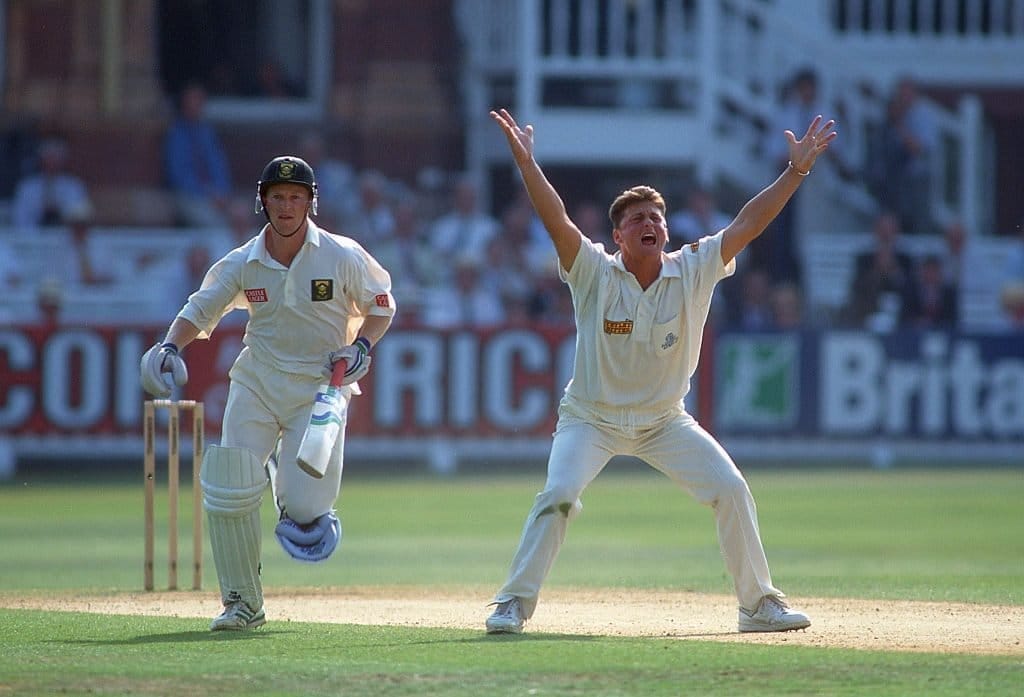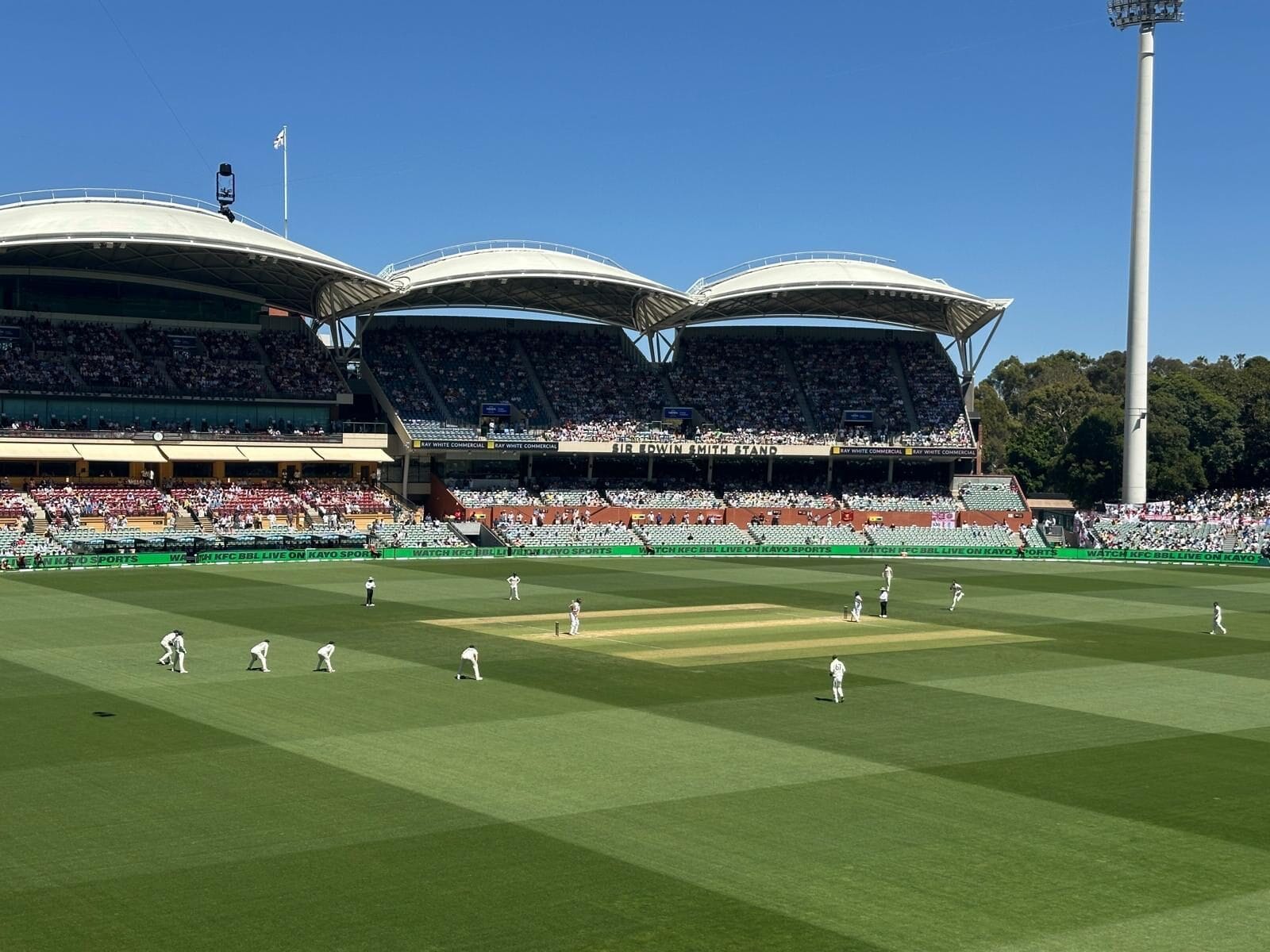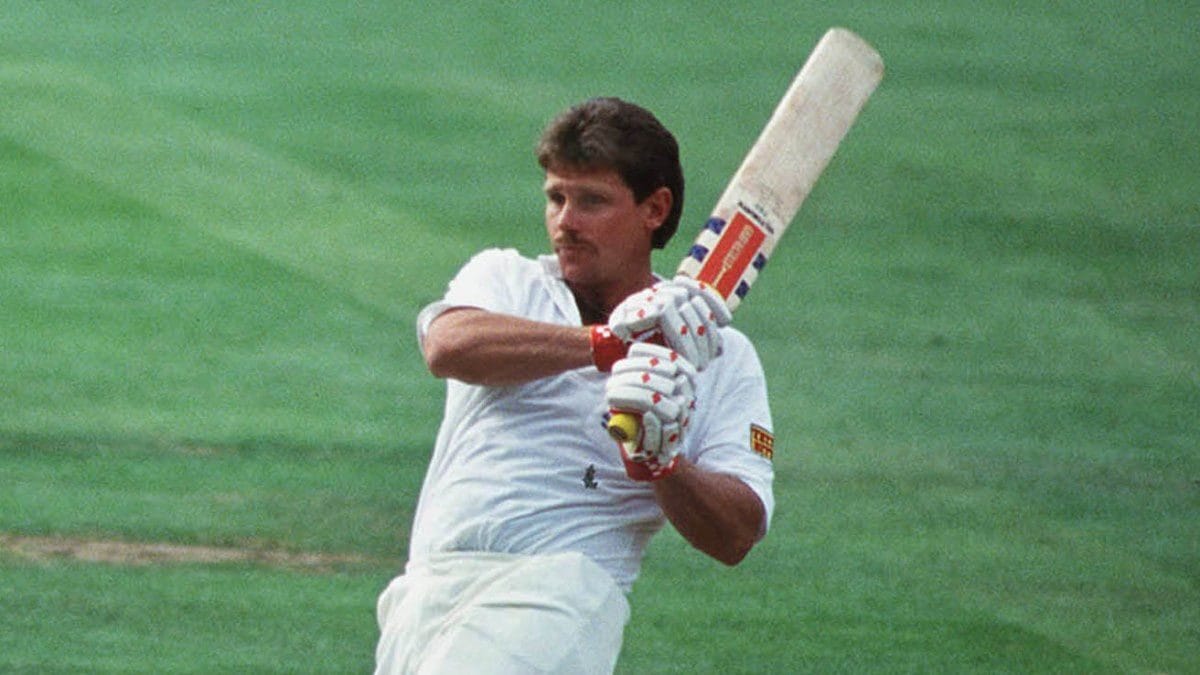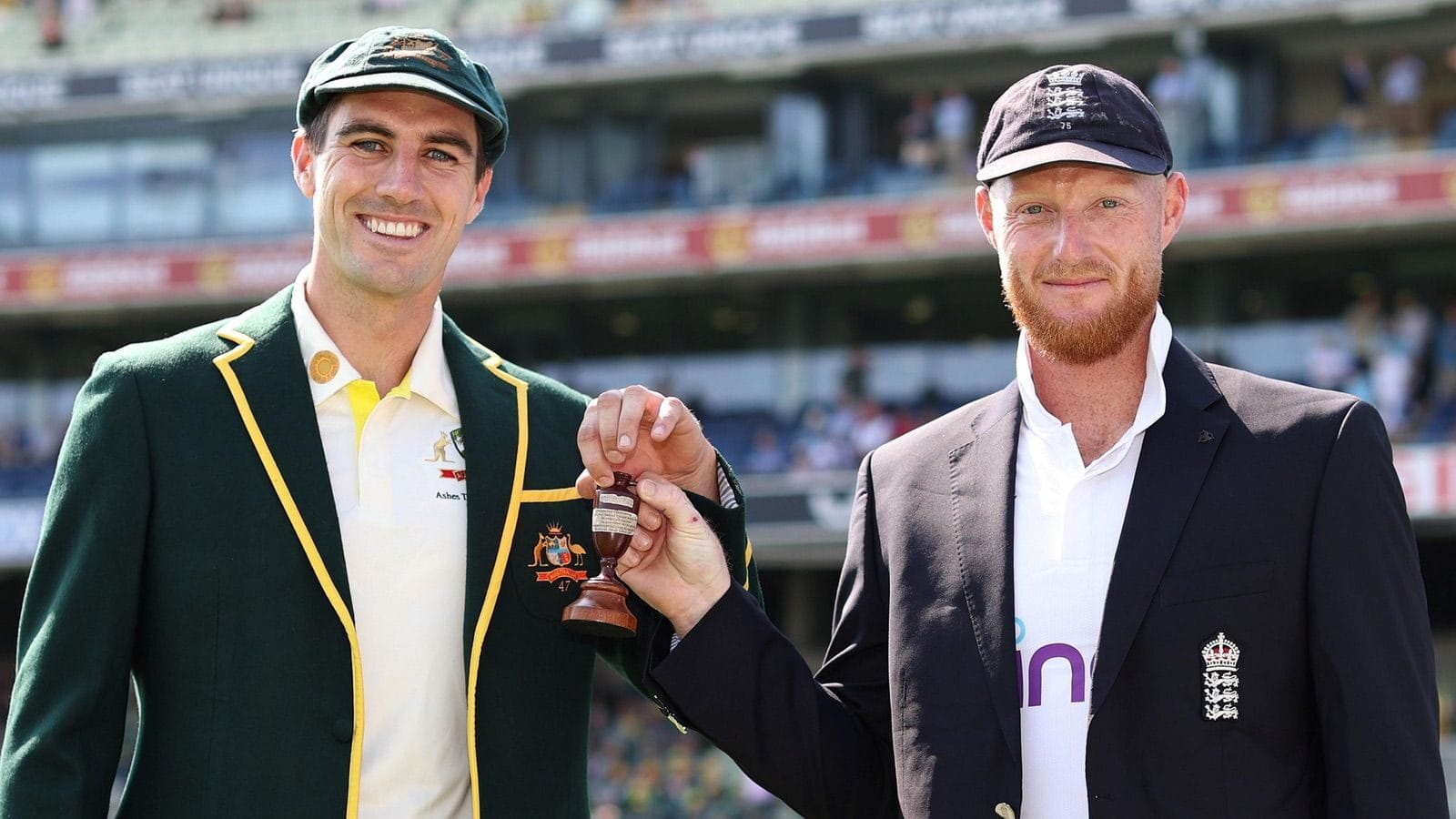Whatever one’s views on Britain’s honours system, nobody is going to begrudge the award of an MBE to the former Yorkshire and England cricketer Darren Gough, just after his 50th birthday in September.
Looking at his career as a whole, it might be difficult to say that Gough was a great player, if only because of the inconsistency brought about by or associated with injury. At the very least he was unquestionably very good. But that is almost beside the point. Gough appealed to people in a special way. It is probably true to say that only Ian Botham, Andrew Flintoff and Ben Stokes, among England cricketers of the last 35 years or so, have been more popular than Gough. They, of course, were, or are, all winners in every sense of the word. It was different with Gough: for instance, he played in four Ashes series and lost them all (he was on the 2002-03 tour but went home injured without playing a first-class match). But Gough never looked like a loser. He wore his heart on his sleeve, as the eminent psychologist Shane Warne once observed. In fact Warne paid Gough the greatest compliment imaginable: he wondered if he had Australian blood in his veins. Gough was an outstanding and inspirational player in what was, at least initially, a not very good side, and he was able to provide gusto, bravado and optimism that other outstanding members of the side – Michael Atherton, Alec Stewart, Angus Fraser – simply weren’t able to. There were two aspects to this. There was his impact in the dressing room; at least two of his captains, Stewart and Michael Vaughan, were on record as saying how valuable his ebullient persona was in that context. And, separately, his showmanship on the field had the capacity to change the mood and performance of the team. That broad grin suffusing his ruddy cheeks could cheer anyone up.
Of course we are all more complicated than we seem. Vaughan, a teammate at Yorkshire for many years, said that Gough was not as self-confident as he appeared and was in some ways quite insecure. Gough’s last Test was the Lord’s Test against South Africa in 2003, which was Vaughan’s first as Test captain. As Gough prepared to bowl the first ball of the innings Vaughan, standing at mid-on, heard him muttering that he’d had enough of this and really couldn’t carry on any more; not, as Vaughan said, encouraging words to hear at the start of a campaign.
Gough’s international career started in the English summer of 1994, when Graham Gooch and Mike Gatting were still in the Test side, and he played his last Test in 2003, when he opened the bowling against South Africa with James Anderson. He retired from Test cricket to prolong his ODI career, as Atherton wrote later, the first to do so but definitely not the last.
Gough’s special qualities of ebullience and self-belief were evident from the start. It was his batting that first caught the attention. In his debut Test against New Zealand at Old Trafford he hit 65, with ten fours, in England’s only innings, putting on 130 for the eighth wicket with Phil de Freitas, and then took four for 47, dismissing opener Mark Greatbatch in his first over. Against South Africa he took eight wickets in the first Test at Lord’s, which the visitors won by the considerable margin of 336 runs. England levelled the series in the third and final Test at The Oval, a game made famous by Devon Malcolm’s devastating nine for 57 in South Africa’s second innings. Gough played a crucial part in this victory making 42 not out in England’s first innings and adding what Wisden called “59 exhilarating runs” with de Freitas in the last half hour of the second day.
He was the only real success of Atherton’s generally rather lamentable Ashes tour of 1994-95, which the hosts won 3-1. Australia won the first two Tests and the fifth by almost embarrassing margins. England somehow contrived to win the fourth, at Adelaide and with more time and luck might have won an intriguing drawn game at Sydney.
This was the game in which Gough really announced himself as a serious Test cricketer. In England’s first innings, coming in in the morning of the second day he attacked Australia’s experienced bowlers making 51 off 56 balls in what Wisden described as a “jaunty innings of village-green innocence”. The Australian writer Gideon Haigh made an interesting observation about Gough. When he reached his half-century he raised his bat not to the England balcony, as was the custom, nor to the press box, but to the massed England fans, the newly created Barmy Army; they had found one of their own. Haigh made another point about Gough, referred to above, and, remember, Haigh was writing as the series was being played: “The effect on the corps of Gough’s esprit is discernible.”
Those runs changed the complexion of the match. This became clear when Australia batted and rain freshened the pitch. Gough’s pace and accuracy troubled all the batsmen. At one point they were 65 for eight and the follow on seemed possible. A combination of Mark Taylor’s obduracy (49 out of 116) and fielding lapses enabled them to avoid that. Gough took the last two wickets in successive balls, including Taylor, deceived by a brilliantly disguised slower ball to be caught and bowled. He took six for 49: “the beamish boy”, as Haigh put it, “who has everyone’s attention.” The great Harold Larwood, of Bodyline fame (who had lived in Sydney for years) telephoned the dressing room to congratulate him.
Gough’s tour came to an end soon after that. He injured his left foot in a one-day game and missed the rest of the tour, including the last two Tests. Injury, especially a persistent knee problem, remained a bugbear.
It is odd but Gough’s career highlight as a Test batsman had already occurred. He never scored another Test half-century and finished with an average of 12.
As a bowler, though, Gough was a class act. He took 229 wickets at 28. 39 in 58 Tests. He is 58th in the all-time list. His strike rate, though, was 51.6. Of the 57 bowlers above him in the wicket-taking list, only 10 have a better strike rate, and among England bowlers, only Fred Trueman. Among England bowlers he is 12th in the wicket-taking list, between Andrew Caddick and Steve Harmison. Among England bowlers who took at least 200 wickets, only Alec Bedser (236 in 51 matches) and John Snow (202 wickets in 49 matches) played fewer Tests.
Gough had an exceptional one-day record too, taking 235 wickets at 26.42. Only James Anderson among England bowlers has taken more. Of the 30 bowlers above him in the wicket-taking list, only 12 have a better average and 14 (including Anderson) a better strike rate than his 36.0. He carried on playing ODIs until 2006, when he opened the bowling against Pakistan with Stuart Broad. He took a wicket in the first over of both his maiden Test and his first ODI.
Gough was broad and stocky, but not especially tall: at 5’11” he was the same height as Malcolm Marshall. This had a significant impact on Gough’s style and approach as a fast bowler.
At his peak Gough was genuinely fast. He had a busy, bustling run-up and a quick arm action. He was generally very accurate. In his dramatic and brilliant hat-trick at Sydney in 1998-99 Stuart MacGill and Colin Miller were both yorked, and generally a high proportion of his wickets were bowled and lbw. (Gough is the only England bowler to have taken a hat-trick in an Ashes Test since the 19th century.)
Relative shortness of stature meant that Gough, like Marshall, concentrated on full length deliveries; particularly in one-day cricket he became a master of the fast inswinging yorker. Just as importantly it meant that he was an ideal foil to the man who became his most consistently successful bowling partner, Caddick. Caddick, tall, hitting the pitch hard, and extracting plenty of bounce, and Gough, skiddy and swinging in both ways, were a formidable combination for four years or so from about 1997. In 2000, when England beat the West Indies in a series for the first time since 1969, both Gough and Caddick managed to play all five Tests, something no England opening pair had managed since the days of Trueman and Brian Statham. Gough took 25 wickets at 21.20.
Conventional swing made him a formidable operator in home conditions. He missed the opening games of the series against South Africa, dominated by the visitors but the tables were turned when he returned and in the fifth Test at Headingley, cheered on by an adoring home crowd, he secured his best Test figures, six for 42, and helped secure a series-winning victory. Likewise in helpful early season conditions against Pakistan at Lord’s in 2001, Gough’s first innings five for 61 (eight in the match) helped secure an innings victory.
By this time Gough had added an extra degree of skill to his repertoire; the great Wasim Akram himself said that Gough was the first bowler from outside Pakistan to master the art of reverse swing. This explains in part his considerable success overseas. In eight Tests in Australia he took 41 wickets at 27.12. Of course there was the hat-trick in Sydney in 1998-99, but his performance in the previous Test at Melbourne was more significant. He took five for 96 in the first innings, registering regularly at over 140 kph, and England actually won.
More remarkable perhaps was his performance on the two tours in 2000-01, when Nasser Hussain’s England won series in very hostile conditions in Pakistan and Sri Lanka. In the latter three-Test series he took 14 wickets at an average of 19.57. I watched the whole of the enthralling decider in Colombo. It is impossible to imagine more difficult conditions for a fast bowler, in terms of heat and humidity. The spinners, Robert Croft and Ashley Giles, did their bit in Sri Lanka’s crucial second innings, but it was Gough (three for 23, including both openers) and Caddick who did the real damage.
There was another famous victory in which Gough played a part. This was the fifth Test against South Africa at Centurion in 1999-2000, a match celebrated at the time because of England’s apparently exciting two-wicket win, but subsequently notorious because the finale had been contrived by the home side’s captain, Hansie Cronje, and his match-fixing confederates. On the evening of the match’s penultimate day a result seemed so implausible that a number of England players had some no doubt much needed rest and recreation in the local hostelries. For the game’s rousing finale Gough was required to put on his pads and go out to bat. In fact he hit the winning runs. Vaughan has said that the brief innings was testament to Gough’s skill as a late order batsman when the team was under pressure, at the same time not disguising the fact that his distinguished teammate seemed slightly under the weather. Gough himself has admitted that he drank so much the night before that he didn’t actually know whether he was still drunk, or just hungover.
In 2004 Gough left Yorkshire to join Essex. There were compelling personal reasons for this but, well, it doesn’t seem right; the lad from Barnsley is as much a part of Yorkshire as the pudding and the terrier.
Atherton told a story about that first Test of Gough’s, back in 1994, when he made such a sensational impact. There were two home dressing rooms at Old Trafford, one much smaller than the other. Gough grabbed his county teammate Craig White and commandeered the smaller one, pinning a notice on the door saying “Yorkshire Only”. The password was “Brian Close”.
It is hard not to find Darren Gough appealing. As a radio presenter he is much as you would expect, bluff and no nonsense, positive and engaging (albeit wrong about four-day Tests). He has been a magnificent servant of English cricket.





6 comments
Will Jefferson
A great article Bill. I was fortunate to play with Dazzler for two seasons at Essex…he said he signed to win a one day trophy and we did…his yorker accuracy skills were unrivalled at the time.
When T20 started he also (obviously) talked his way into batting 3 for us…! Lots of good memories…
Will Inglis
Excellent article as ever Bill. Gough’s gong is certainly more merited than the peerage awarded to another former cricketer for beating Boris’ Brexit drum.
Piers Pottinger
A very good piece and certainly thorough. Will you write about Lord Beefy next?
Nick OBrien
With cricket such a mentally challenging game the contribution of Gough’s character is difficult to quantify but well worth the attempt. The analysis of his average and strike rate brings life to his statistics and talent and if anything an abridged career. Reverse swing. Bowling partnerships is something I don’t think about enough. A feast.
Malcolm Merry
One of barely a handful of top-class England players to emerge in the 1990s, pre-central contracts. Nearly 4 wickets per test, the mark of a truly outstanding bowler.
As Yorkshire as the pudding and the terrier, lovely.
Alex Deverell
Great to read Bill – thanks. I’m so regretful that being newly fanatical to the wonderful game of cricket I wasn’t paying much attention to Gough and his era but it’s great to hear how brilliant they were now I understand the game and I really can’t get enough of it!